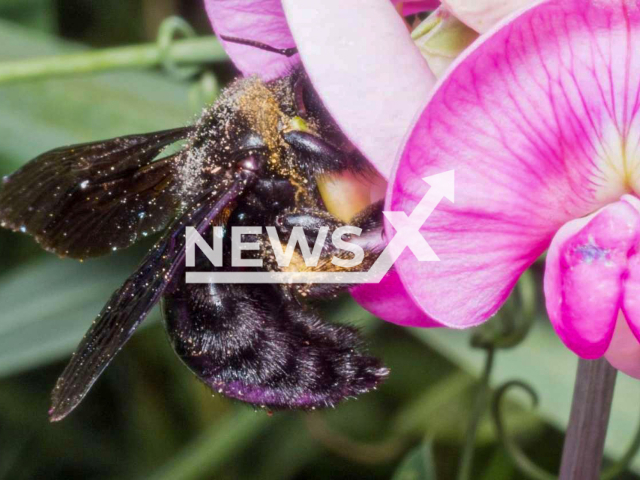 The venom of wild bees such as the violet carpenter bee (Xylocopa violacea), with its main component melittin, is less aggressive than that of honey bees, a team from the LOEWE Center TBG discovered, undated photo. In the future, it could be used against breast cancer cells, among other things. Note: Licensed photo. (Björn M. von Reumont/Newsflash)
The venom of wild bees such as the violet carpenter bee (Xylocopa violacea), with its main component melittin, is less aggressive than that of honey bees, a team from the LOEWE Center TBG discovered, undated photo. In the future, it could be used against breast cancer cells, among other things. Note: Licensed photo. (Björn M. von Reumont/Newsflash)
Copyrights: Björn M. von Reumont/Newsflash
27 December 2022
The venomous substance produced by one of the most common wild bee species could help to treat breast cancer, according to scientists in Germany. Researchers at Goethe University and the LOEWE Center for Translational Biodiversity Genomics in the Hessian city of Frankfurt compared different...